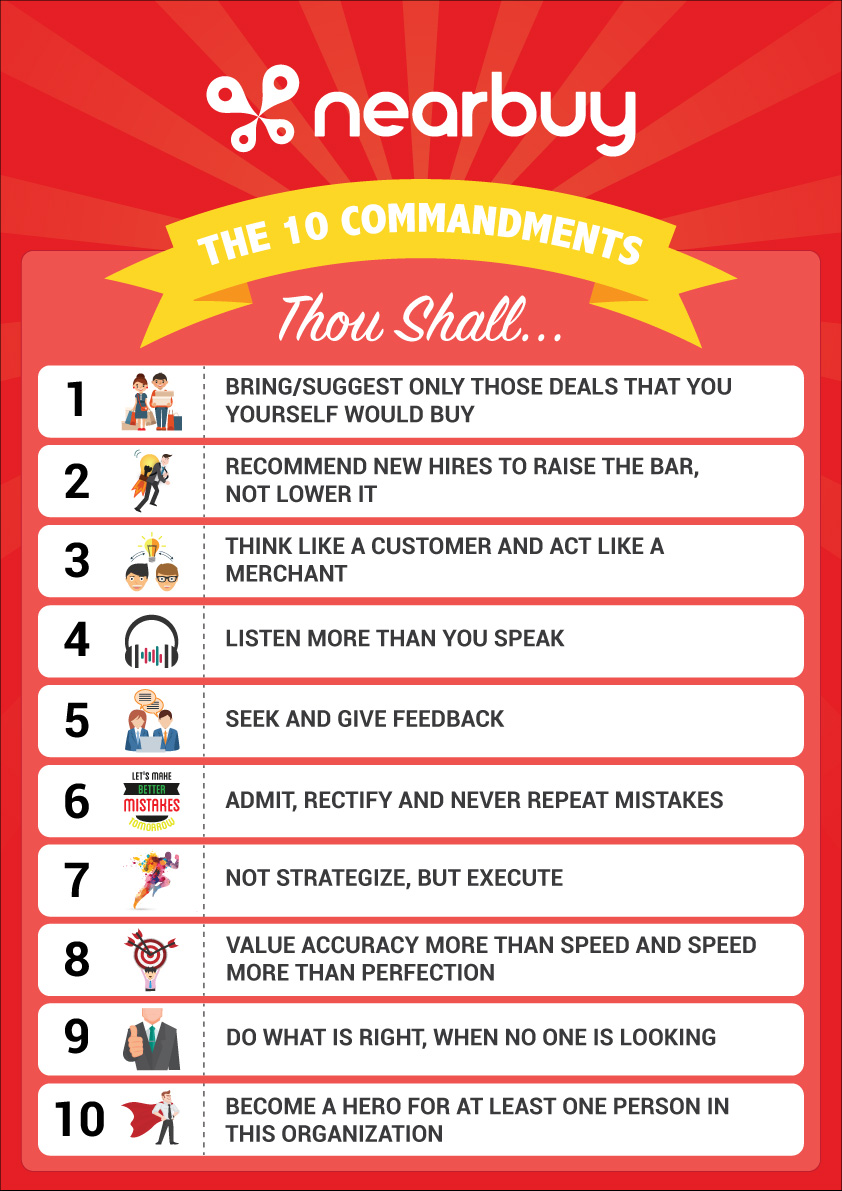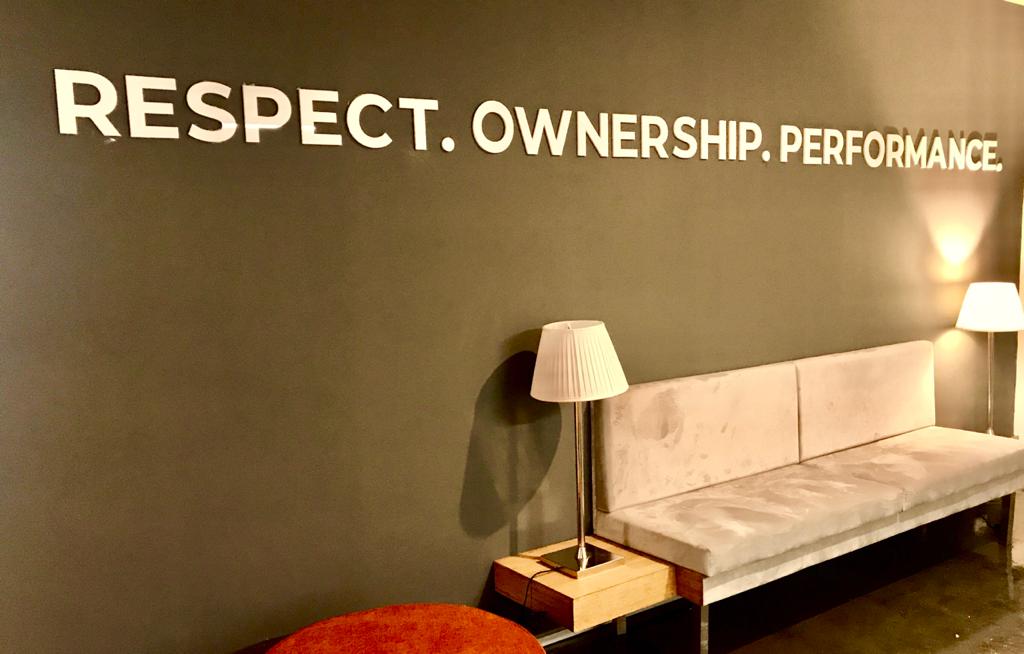What remains hard (and has gotten harder) is to build an institution where people love to come to work.
It becomes oxygen - something critical, but we don't acknowledge it every second. Its just there.
What then makes people love to come to work?
How are they made to feel, at the end of everyday.
And that comes down to this rather hard to explain thing called culture.
It is culture that dictates how people operate, how they behave and how they feel.
1. What happens when the boss leaves the room?
2. What do people do when no one is looking?
3. What happens when a tissue paper is lying on the office floor?
It doesn't matter who you are, how you look, how much you earn, how you speak, where you studied, what your title is or how long have you been with us.
You will be respected.
And you will respect everyone accordingly.
This was the cornerstone of our functioning...
It comes from conduct.
When someone truly respects you, they respect you even when you are not around.
Ownership isn't doing what you are supposed to do. That's your job. That's what you are paid for.
Ownership is going beyond.
It means not taking what the organization lays out for you, as the only benchmark. Instead finding your own levels and benchmarks.
This is precious.
Not something that money can buy.
No one told him to do it.
At the end of the day, it all comes down to performance.
Not what you were meant to do.
Instead, what you were meant to achieve.
The outcome. As against the output.
Always asking, "Why am I being asked to do what I am being asked to do?"
There is only one thing that mattered - did you achieve what you had set out to do.
1. Talk about it.
Over and over again.
Paste it on walls.
2. Exhibit it daily.
In your actions.
Through your words.
While we followed 1, it is 2 where I think we scored.
Here are a few things we did...
When I started Groupon India in 2011, I had a rather fancy image of how to build a strong culture.
It was based on my understanding of the west - Google, Facebook and the likes
A flat open office, lots and lots of autonomy, open doors...
And so we did that. Built really nice happy offices. Kept saying, "our doors are open. talk to us whenever you want"
Nothing happened...
We are not the West.
We are India.
We are culturally very different.
We are trained to be complaint. To be subservient. To not question authority.
We are fearful of the reactions to our feedback.
Man is least himself when he talks in his own person. Give him a mask, and he will tell you the truth.
AHA!
This was it.
Not the source of the truth.
I care about what needs to be fixed, or improved, or challenged.
I do not care about who feels this way or said it.
What we needed was anonymity.
We built our culture on the foundation of anonymity.
And obsessive transparency.
Anonymity + Transparency
Which made us consistent in our actions. And predictable.
And thus gave people the most important thing we all care for...
Anonymity + Transaparency = Consistency + Predictability = Security
An anonymous Google form
If you see anything in the company that makes you go "why the fuck?"
"Why the fuck are we doing this"
"Why the fuck are we not doing this"
Ask on the google form.
here is the fun part...
And I answered
And the answers were shared with the entire company.
The questions, and the responses were public for everyone to see.
It was fascinating!
"WTF are we supposed to wash our coffee mugs if there is no office help"
"Sorry for this. The help was on leave. You should know though when we started, I was the one opening and closing the office shutter everyday for the 1st year. That's who we are"
I had lunch with an employee everyday.
It was one of the most special things I did. And it worked like magic.
I spoke about this on a TEDx talk
4. Managers were to have 1:1 with their teams at least once every month.
Mandatory.
No exceptions to this. I was brutal when it came it
(Something that I learnt from @IndraNooyi, as a tradition she followed at Pepsico)
The most emotional time of the year - receiving responses from the families and employees ("I have seen my parents so proud of me!")
7. Using @infeedo as my sentiment gauge (thanks @tanmaya17) - an HR bot that chatted with employees on how they are doing.
If you ask anyone who has left nearbuy, what do they recall the most - almost all of them will say "one of the best cultures I have worked in."
And each time they accept a new standard they set a new culture.
I often feel sad that nearbuy is not a success, in the socially accepted definition of success.
You know - unicorn and shit.
Because it often leads people to believe that this form of leadership and culture building doesn't work
An institution which makes people say, "It's possible to build an immensely successful workplace where people love to come to work."
Fin.




